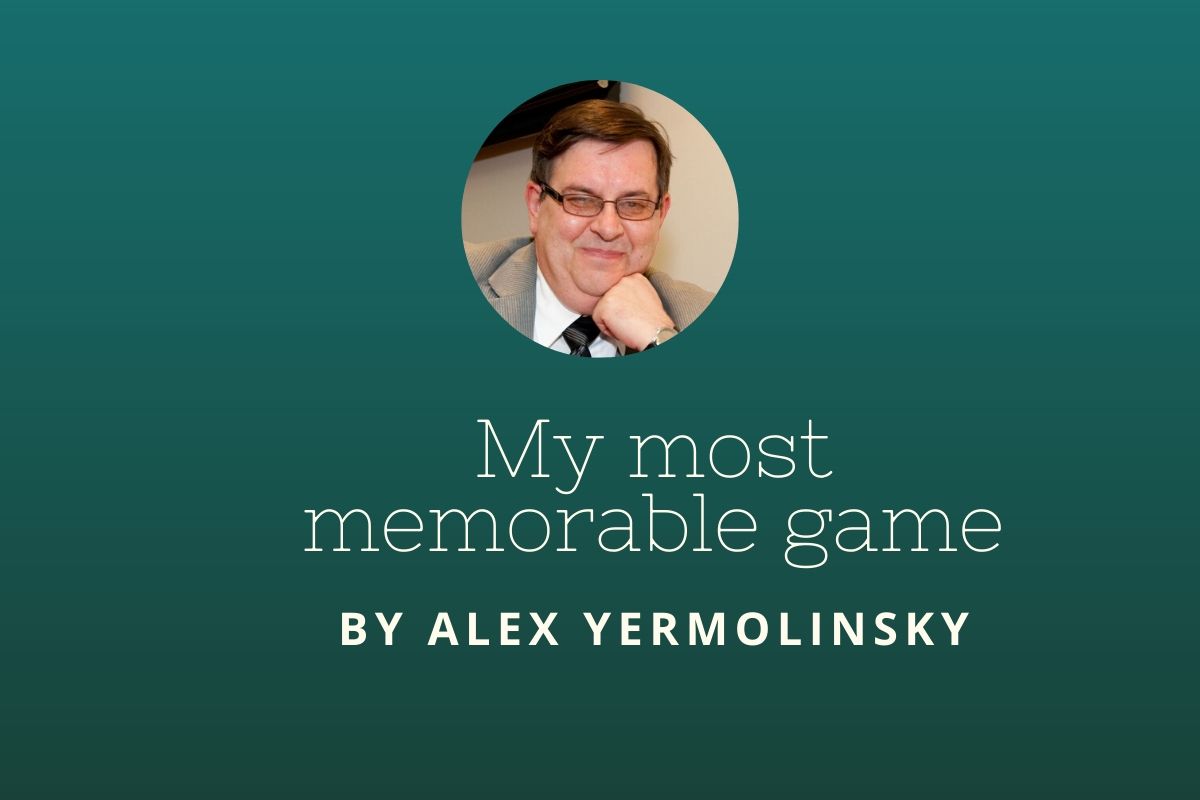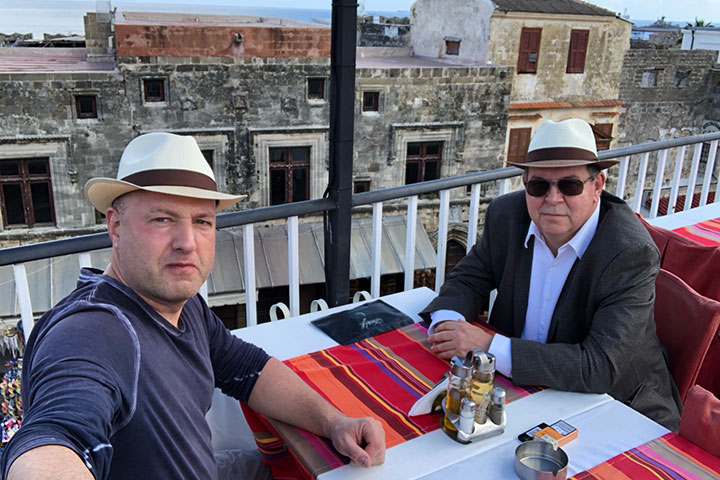


Alex Yermolinsky was born on April 11th, 1958 in Saint Petersburg (known as Leningrad at the time). He emigrated to the United States in 1989 and started representing the US team in Olympiads since 1992. During the 1990s, Yermo enjoyed great success participating in Swiss opens, notably winning the World Open three times. In those years, he also won the US Chess Championship twice, first in 1993, when he shared it with his old friend Alex Shabalov, and then in 1996, when he won the title outright. These accomplishments led to Yermolinsky's induction to the World Chess Hall of Fame in 2012.
His chess career is not limited to his sporting achievements, though, as he has also made a name for himself as an instructor, broadcaster, tournament director and author. In 1999, his famous book The Road to Chess Improvement was published by Gambit. A winner of the Chess Journalists of America Cramer Award for Best Chess Book in 2000, it received high praise from critics. In his lengthy review of the book, John Watson quotes some of his favourite excerpts, including:
The whole idea is to reject any postulates in principle, only to be replaced by concrete analysis.
That is the kind of no-nonsense approach that so many chess fans enjoy in Yermo's writing and broadcasting. We are glad to have him as a regular contributor, as his storytelling abilities help him to get his ideas across in a much more effective way.

Shabalov and Yermolinsky during the 2019 World Senior Team Championship in Rhodes
Yermo sent a game that can only be described as memorable. Amid some personal issues troubling his mind, he defeated none other than Veselin Topalov in attacking style. Enjoy!
I came to the 1999 Hoogovens in Wijk aan Zee a day late and a dollar short.
I made a successful debut in this venerable event two years prior to that. The 1997 edition had a decent field, as attested by seeing Korchnoi, Short and Lautier all taking place in the bottom half of the table, yet I was able to finish fifth. Probably, I made some of the local crowd unhappy when I defeated their local boy, Jeroen Piket, in the last round, depraving him of first place.
Anyway, I was at the top of my game at that time, however brief that period was meant to be. In the summer of 1997 I went from one tournament to another, got married in the process, and, generally, was a little high in the head. The Wijk aan Zee organizers sent me an invitation for the next year event, but in those days of snail mail and unreliable Internet, it somehow got lost in the shuffle. When I finally learned about it, my spot was already given to Alexey Shirov, more than a capable replacement in an improved field. I was mildly annoyed by that, but not really devastated, and, besides, the organizers made a very nice gesture by extending their invitation to the 1999 edition.
Bad thing was, by that time life began to catch up with me. You heard the old “life gets in the way of chess” expression? That's exactly what happened to me.
Not for the lack of trying though. I kept going like Energizer Bunny. In 1998, I played 135 tournament games (no rapid of blitz counted), saw my rating drop 70 points, and felt completely burned out toward the end. The last tournament I played before returning home for Christmas was the Koop Tjuchem Premier in Groningen. I did horribly, finishing last in the six-player field, with no wins to my credit.
I came home to Cleveland, to my poor wife and six-month-old son, only to pack my bags and leave for Holland again a couple of weeks later. I felt guilty and depressed.
The Hoogovens tournament transformed itself to an elite event by securing the participation of World Champion Garry Kasparov and all other usual suspects. Fighting off the jet lag, I started with a quick draw with Svidler, and then went on a three-game losing streak. My game was completely off, I had no preparation, didn't sleep or rest well. Having to face Kramnik and Kasparov in rounds two and three didn't help either. Then in round five I finally put together a decent performance against Ivanchuk (Kasparov said it was a nice game), only to blow a win on the last move before the time control. With 1 point after five rounds, the tournament was over for me.
From the perspective of a Swiss tournament regular, as I was, I hardly saw any point in continuing to fight. Rating gain or loss didn't matter to me anymore, and money-wise there was hardly any incentive to try to climb back to the middle of the pack.
I just wanted to win one goddamn game, and I went for it like a maniac.
I wish I could write a different script of what happened after this victory. “Alex Yermolinsky builds up on his brilliant win to get on a winning streak, eventually finishing just behind the leaders, goes back to the U.S. with his head high, and continues with his glorious chess career.” Didn't happen.
I plodded through the rest of the event by trying (and making) draws with White and losing with Black. The final score of -5 signified the end of my aspirations as a professional player. In the mock interview for the back page of New In Chess, I answered the question “What is your worst nightmare?” with, “Playing in Wijk aan Zee again”.
It was high time for me to change my priorities. By the end of 1999 I took the job with the Mechanics Institute Chess Club in San Francisco.